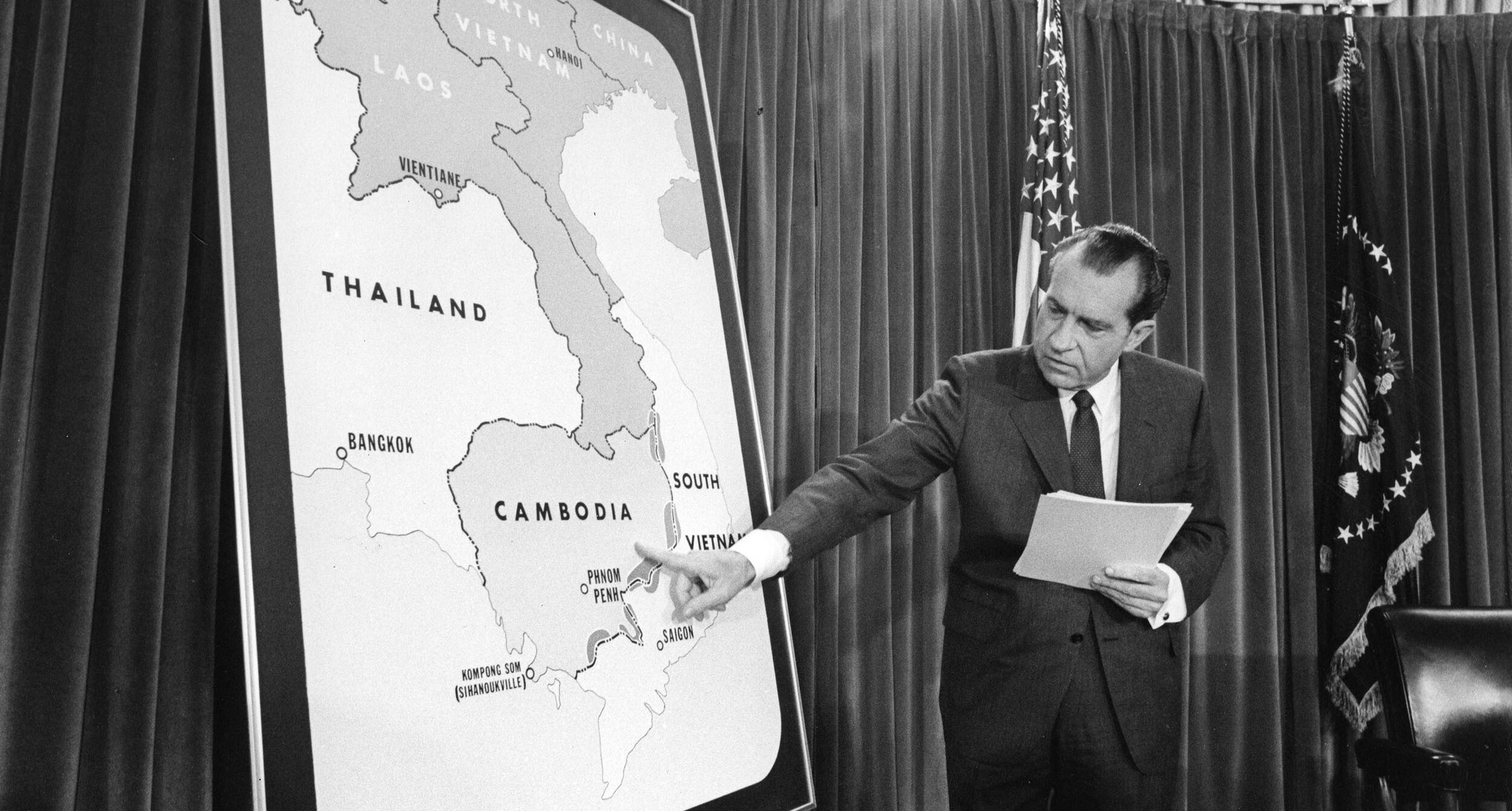
“We’re up against an enemy, a conspiracy. They’re using any means. We are going to use any means. Is that clear?”
-— President Nixon, to H.R. Haldeman
This seven-episode podcast is a fresh, provocative telling of the story of the Vietnam War and the president who oversaw its ugly end. How Richard Nixon used the war to get elected and re-elected, and opened the political and cultural fissure that became the political and cultural chasm dividing Americans today. Remarkable archival tape recordings are the heart of the series — hundreds of buried, never-before-heard conversations and interviews that play like dark drama.
Follow on: Apple Podcasts| Spotify | Stitcher
And just in case you missed it: Nixon at War: How Vietnam Led to Watergate. A one-hour audio documentary, tied to the podcast, that aired on many public radio stations around the 50th anniversary of the Watergate break-in (June 17, 1972).
Also be sure to listen to PRI’s LBJ’s War and LBJ and the Great Society from PRX.
The Show
Most accounts of the collapse of Richard Nixon’s presidency begin with Watergate —- the now iconic tale of a bungled break-in and the misbegotten cover-up that followed. But what led to Watergate? How —- and more puzzlingly, why —- did one of the shrewdest, most gifted political figures of his time become embroiled in so manifestly lunatic an enterprise in the first place? Intrigued by that question, writer/journalist Kurt Andersen takes a deep dive into the vast archives at the Nixon Library and emerges with an answer he wasn’t expecting: While Watergate doubtless accelerated Nixon’s spectacular fall, it was the Vietnam War that led inexorably to the break-in, and from there to the sinking of his presidency.
For Andersen, who came of age in the Vietnam era, that answer in turn begs another, larger question: How did Richard Nixon, with all his foreign policy savvy, allow himself to get trapped in the same quagmire he had watched engulf his predecessor, Lyndon Johnson? These questions are the central concerns of Nixon at War. Over the course of seven episodes, Andersen peels back the onion and emerges with a new and deeper understanding of both the man and the war, and of the complex linkage between them.

The Host
Kurt Andersen was host and co-creator of the two-time Peabody Award-winning public radio program and podcast Studio 360. He’s a prize-winning novelist and historian, whose three most recent books — Evil Geniuses, Fantasyland and You Can’t Spell America Without Me — were New York Times bestsellers. Previously he was a columnist for New York, The New Yorker and Time, as well as editor-in-chief of New York and co-founder of Spy. He is a fellow of the Society of American Historians.
Episode 1: October Surprise
“Get in and get those files. Blow the safe and get it.” —- President Nixon to aide H.R. Haldeman
For President Richard Nixon, the publication of the Pentagon Papers, in June 1971, ought not to have mattered. The malfeasance and mendacity revealed in the Times, and soon in papers across the country, had all happened under previous administrations, from Truman to LBJ. In fact, Nixon’s national security advisor, Henry Kissinger, tells the president, "I've read this stuff, and we come out pretty well in it." But Nixon cannot be mollified. It is not the contents of the Pentagon Papers that he's worried about It is the leaking of classified information that has stoked his fury, and his fear. For Richard Nixon has secrets of his own, secrets that if brought to light, could sink his presidency. What are these secrets? Here the story flashes back, to the late summer and early fall of 1968, when Richard Nixon secures his party's nomination for the presidency and soon finds himself having to navigate the treacherous politics of the Vietnam War. His principal adversary? Not Hubert Humphrey, the other name on the ballot, but Lyndon Johnson, who has opted not to seek a second term, but remains a formidable player, waging a desperate battle to close out the war and salvage his tattered legacy.
Read/download the Episode 1 transcript here.
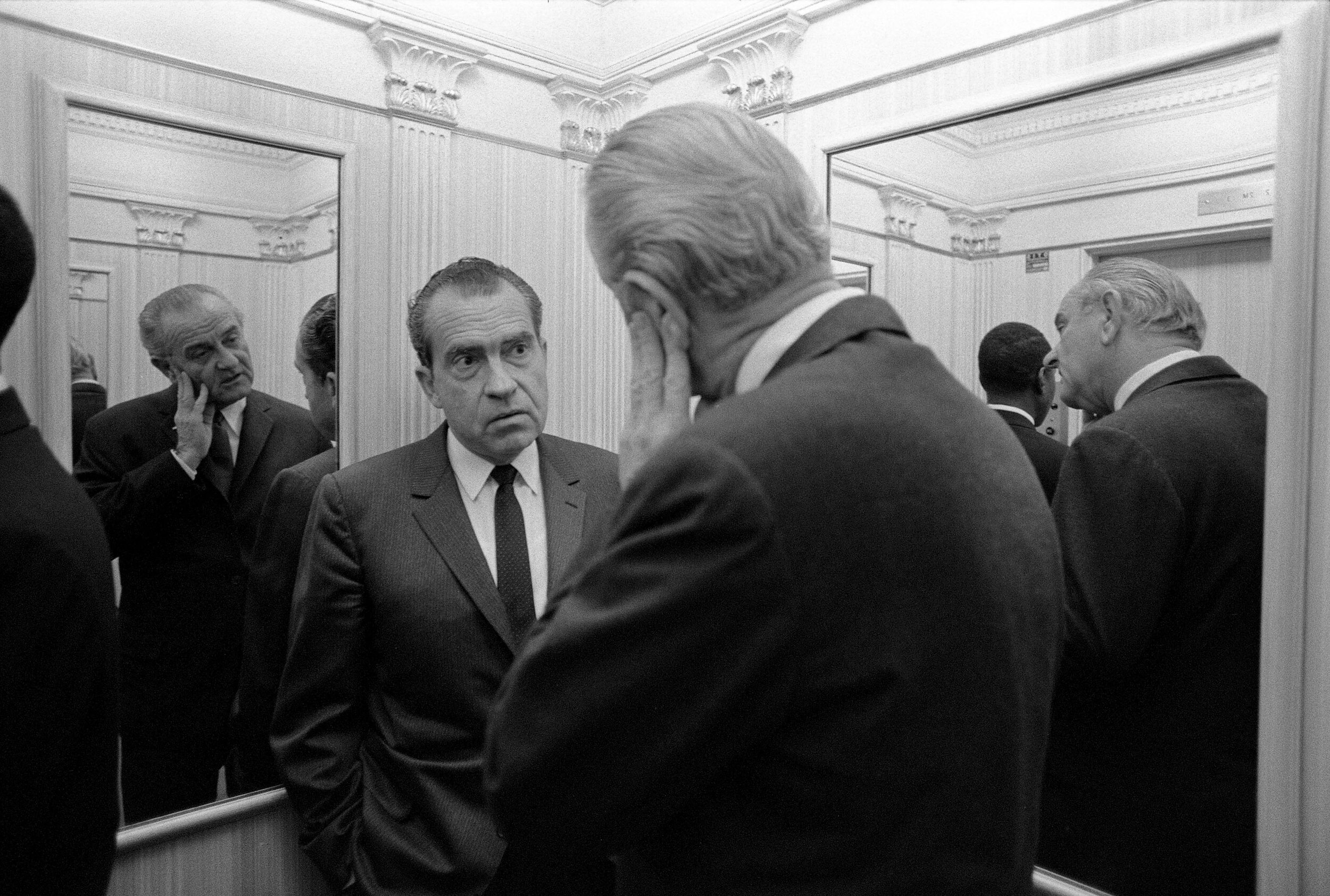
Episode 2: Madame Chennault
“I’m reading their hand, Everett. This is treason.” — LBJ by phone to Senator Everett Dirksen, Republican minority leader
Coming out of the conventions in August ’68, Richard Nixon begins his campaign against Hubert Humphrey, his Democratic opponent, with what looks like an insurmountable lead. Running as the peace candidate, Nixon promises a quick end to a costly and increasingly unpopular war. The strategy works, until late October, when Humphrey finally breaks with LBJ and goes public with his own opposition to the war. Overnight, the race begins to tighten. This is Nixon's last shot. He lost to JFK in 1960, by less than two-tenths of a percent – one of the closest elections in U.S. history – and isn’t about to let it happen again. So, when word leaks, a week before the election, of a possible breakthrough in LBJ’s long-stalled Vietnam peace talks, Nixon sees it all slipping away, and moves to avoid that outcome, at whatever cost. His response is to “ monkeywrench" the Paris Talks, through a mysterious secret intermediary known as the Dragon Lady. LBJ learns of Nixon’s efforts to blow up the talks, but can’t reveal his source – FBI wiretaps on the South Vietnamese Embassy.. “Of all of Richard Nixon’s actions in a lifetime of politics,” biographer John Farrell will later say, “this was the most reprehensible.“
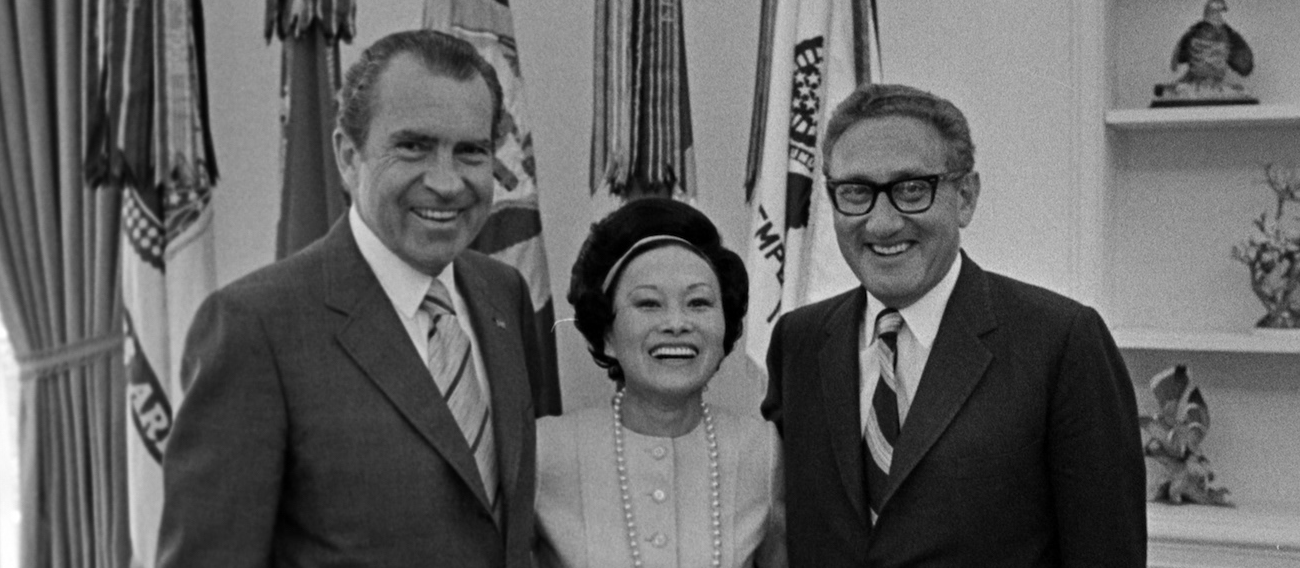
Episode 3: Sideshow
“We bombed the hell out of those sanctuaries. Nobody ever knew it and they didn’t say a goddamn word.” — RN to John Connally, Treasury Secretary, May '72
In December 1968, only weeks after his election, Nixon names Henry Kissinger as his national security advisor. The appointment will prove to be the most consequential of his presidency. The two men barely know each other, but Kissinger moves swiftly and brilliantly to make himself the linchpin – some would say the architect – of Nixon’s enormously ambitious foreign policy agenda. Immediately, and with the new president’s blessing, Kissinger marginalizes both State and Defense, concentrating the making of US foreign policy within the White House. The first challenge: how to force the implacable North Vietnamese leadership back to the negotiating table. By late January ’69, a plan is in place: Operation Menu, a massive and completely secret bombing assault, not on Vietnam but on North Vietnamese army sanctuaries in neighboring (and neutral) Cambodia. Over the next eight years, the U.S. will drop more bomb tonnage on Cambodia than the combined Allied forces dropped in all of World War II. While the bombing remains largely a secret in the U.S., it fails to move the needle on negotiations with the North. By the fall of ’69, the lack of progress has re-energized the anti-war movement, which mobilizes a wave of demonstrations across the country. In response, Nixon takes his case to the country, with the Silent Majority speech, which will come to be remembered as perhaps the most effective address of his presidency.
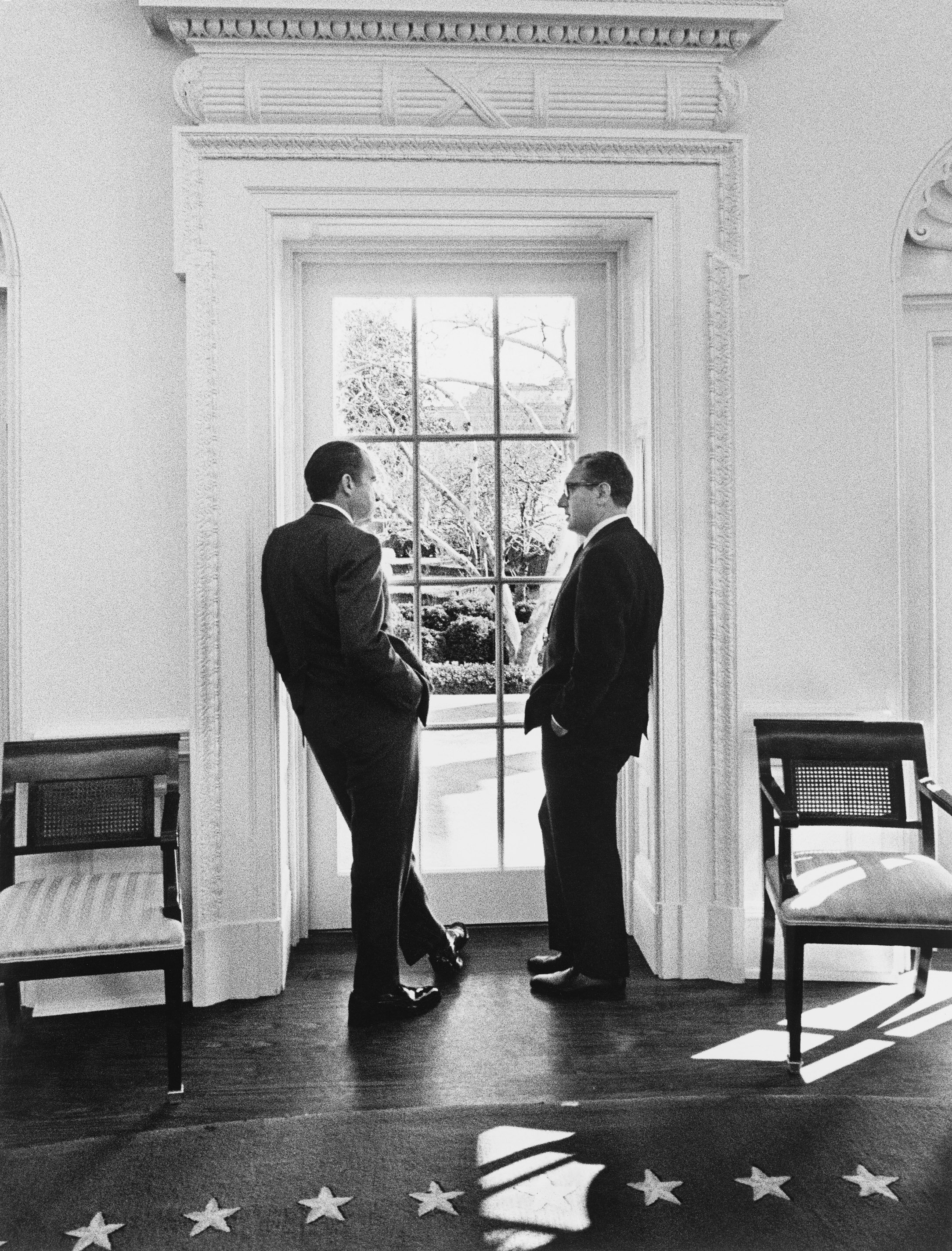
Episode 4: Searchlight on the Lawn
“Don’t worry about due process. These people have broken the law.” — Nixon to aide H.R. Haldeman
In the spring of 1970, the war in Vietnam comes home with a vengeance. A year of secret bombing having produced no movement from the North Vietnamese, Nixon and Kissinger raise the stakes, dramatically. In late April, US and South Vietnamese ground forces invade Cambodia. The “incursion,” as the White House calls it, galvanizes the antiwar movement, which has been largely dormant since Nixon’s Silent Majority speech. Reaction is immediate and intense. On May 4th, a week of snowballing protest and campus unrest culminates in the shootings at Kent State. Four days later, a counterprotest – dubbed the Hard Hat Riot – turns violent in the streets of New York City. On May 8th, following a tense press conference, President Nixon returns to the White House, where he works the telephone late into the night, trying to manage the escalating crisis. Past midnight, he summons his valet, Manolo Sanchez to accompany him on an extraordinary encounter with unsuspecting protesters at the Lincoln Memorial.
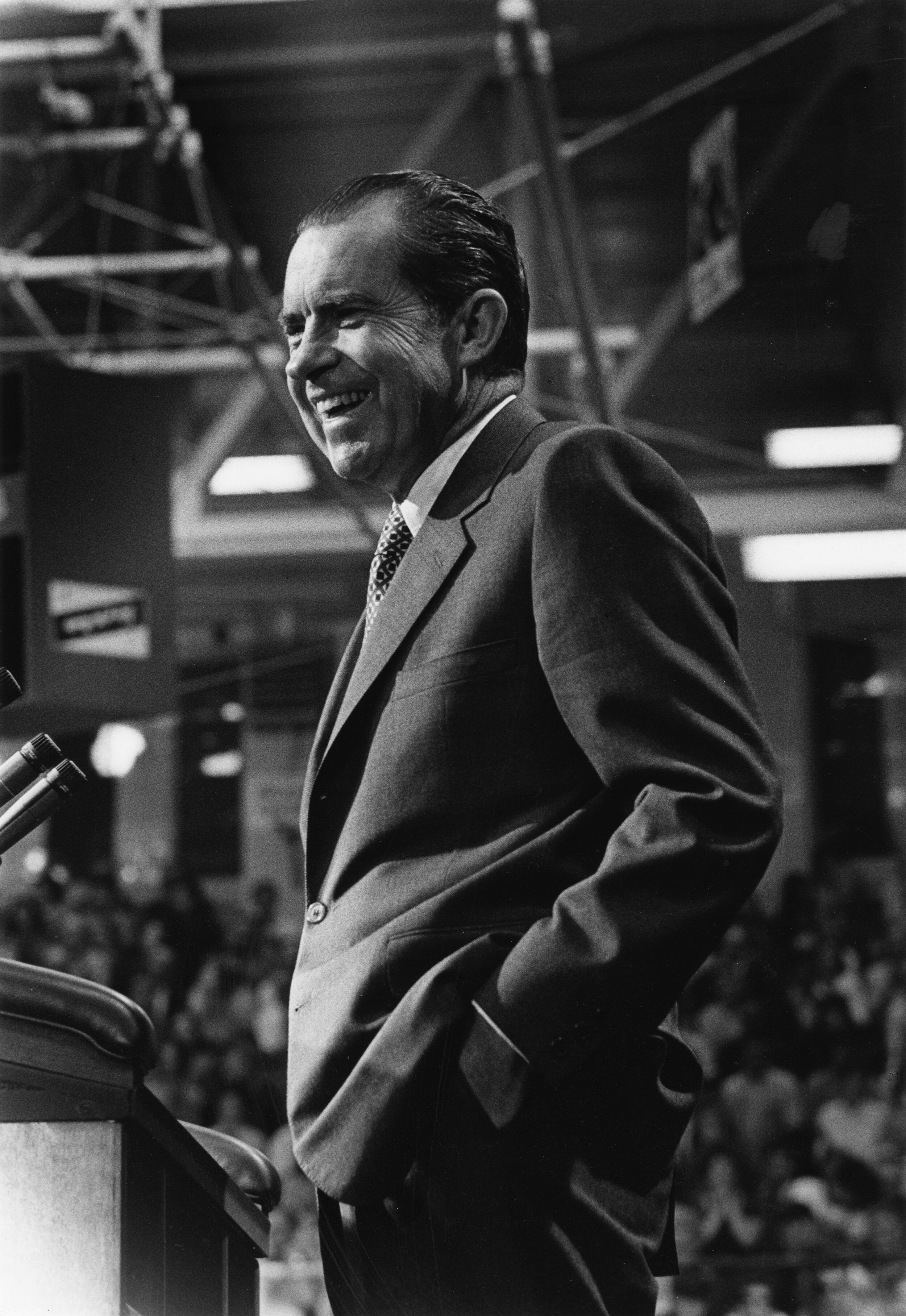
Episode 5: The Beginning of the End
“We can’t have [South Vietnam] knocked over before the election.” - Henry Kissinger, to Nixon
In early February ’71, with pressure building at home to complete the withdrawal of American forces from Vietnam, Nixon puts his Vietnamization program to a crucial and very public test. With the world watching, the South Vietnamese army launches an invasion into Laos, where they will engage a formidable North Vietnamese force. US air power will support the South, but for the first time they will be on their own on the ground. The test is a debacle: facing superior military forces, the South Vietnamese sustain heavy casualties and are quickly compelled to withdraw. Nixon and Kissinger spin the defeat as best they can, but privately, it is a moment of reckoning: after six years of war, South Vietnam shows little sign of being able to sustain the war without continuing US help. Through the spring, opposition to the war grows and spreads beyond the traditional leftist and student base. In April, Senator William Fulbright’s powerful Foreign Relations Committee hears testimony from a young vet by the name of John Kerry, representing a new force – Vietnam Veterans Against the War. Clearly, the tide is turning. Faced with a grim reality, Nixon and Kissinger recognize they must find a way to prop up South Vietnam at least long enough to avoid having it collapse before the ’72 election, now only a year away.
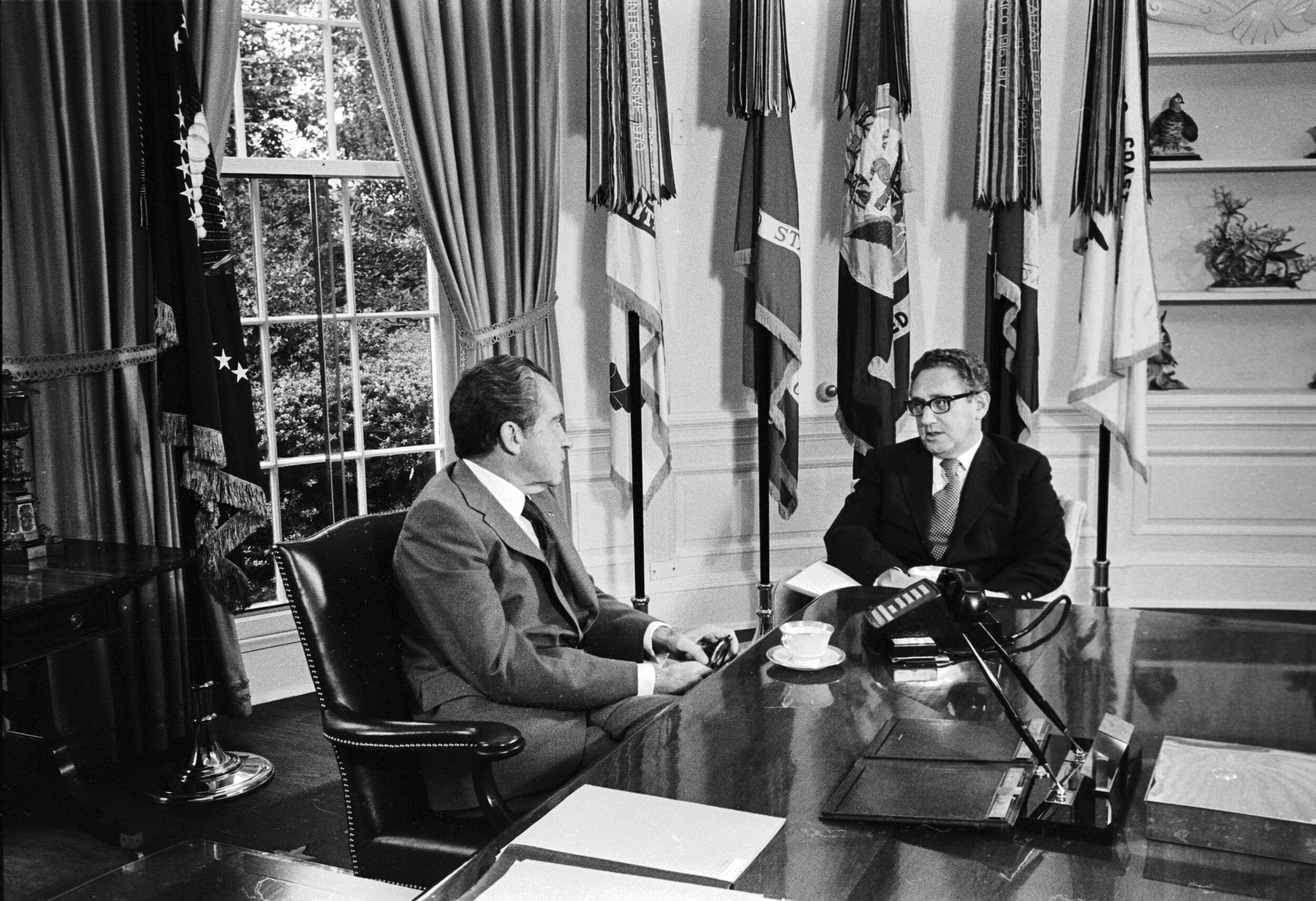
Episode 6: Off the Rails
"Somebody’s got to go to jail for this. That’s all there is to it." — Nixon to H.R. Haldeman
With the publication of the Pentagon Papers in June ’71, the demons that Richard Nixon has wrestled throughout his presidency – indeed, through much of his public life – begin to gain the upper hand. “The strain of office, and the belligerency of his enemies,” Nixon biographer Jack Farrell says, “have begun to unsettle the president, dispelling the ‘mellow’ Nixon of 1968 and unleashing the self-injurious behavior of old.” Kissinger and others assure the president that he has nothing to fear from the Pentagon Papers, and might even benefit from the unflattering light they will cast on his predecessors, but the act of publication of classified documents – thousands of pages worth -- rankles deeply. Very quickly, the president’s long festering paranoia and indignation zeroes in on two of his most despised “enemies” – the press, for publishing the government’s closely held secrets, and the leakers within his own deep state, now personified by Daniel Ellsberg, for the growing threat he believes they pose to his own buried secrets.
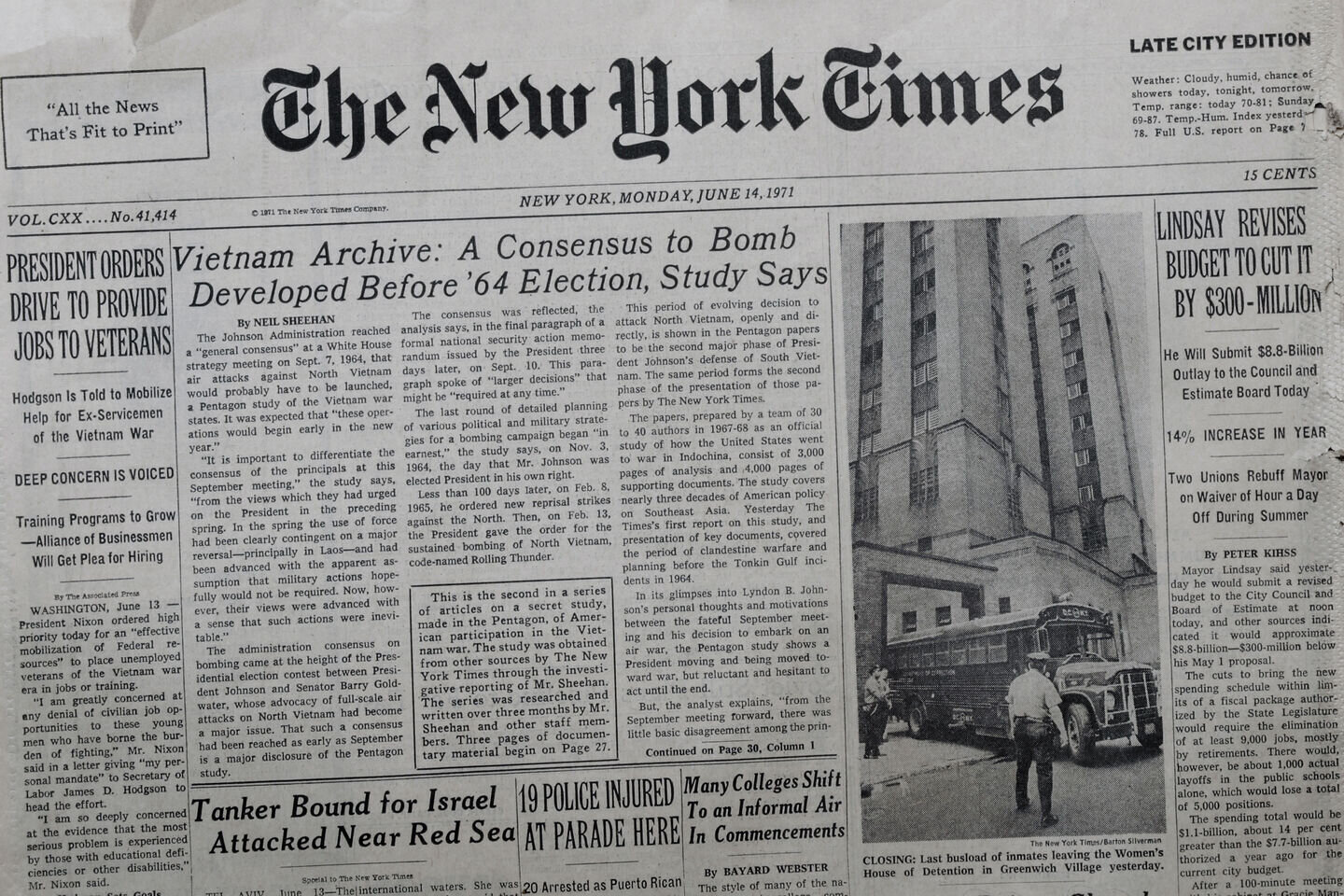
Episode 7: Tangled Web
"We’re not going to let this miserable little country destroy two presidents." — Nixon to Henry Kissinger
In the fall of 1971, Richard Nixon had reason to be optimistic. The long sought China Summit had just been announced, for the following year, to great (and deserved) acclaim. Vietnam, to be sure, remained an issue, but the continuing troop withdrawal had reduced its political drag at home. With his re-election campaign now looming, the polls showed him well out in front of the presumed Democratic front-runners.
But all this good news had little effect on Nixon’s deep-rooted obsession with a growing list of real and perceived adversaries at home. And so, even as the war in Vietnam slowly abated, the war at home only escalated and expanded, against liberals, anti-war activists, Jews, East Coast elites — anyone perceived, however remotely, as a threat to his presidency. “Lashing out was Nixon’s nature,” Jack Farrell tells Kurt Andersen. “His actions were reflexive, heedless of the peril” which lay ahead, and which would ultimately drive him from office.
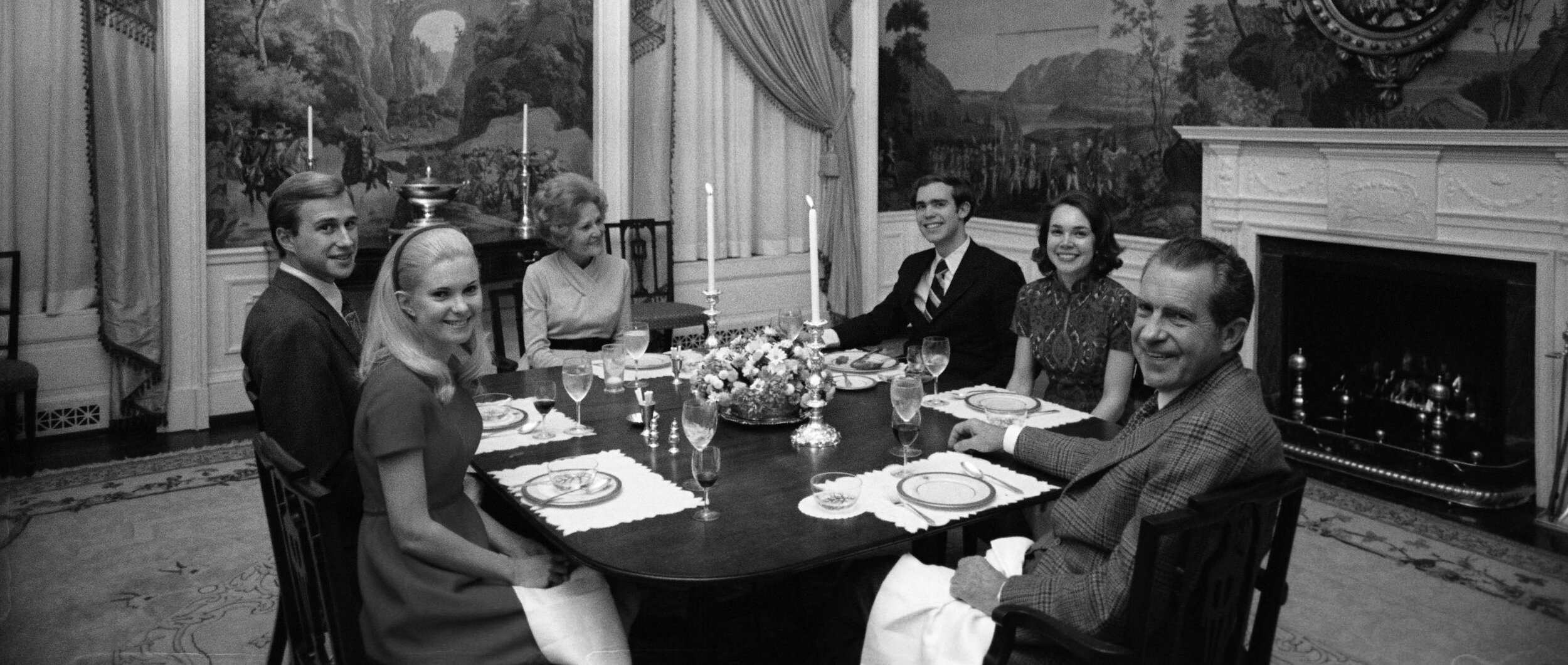
Press
Podcasts
The New Abnormal with Molly Jong-Fast
Politics & Polls with Sam Wang & Julian Zelizer
Here’s the Thing with Alec Baldwin
Hell & High Water with John Heileman
Online / In Print
New York Magazine Approval Matrix
The New York Times’ ‘What to Cook This Week’ roundup
The Philadelphia Inquirer, columnist WIll Bunch
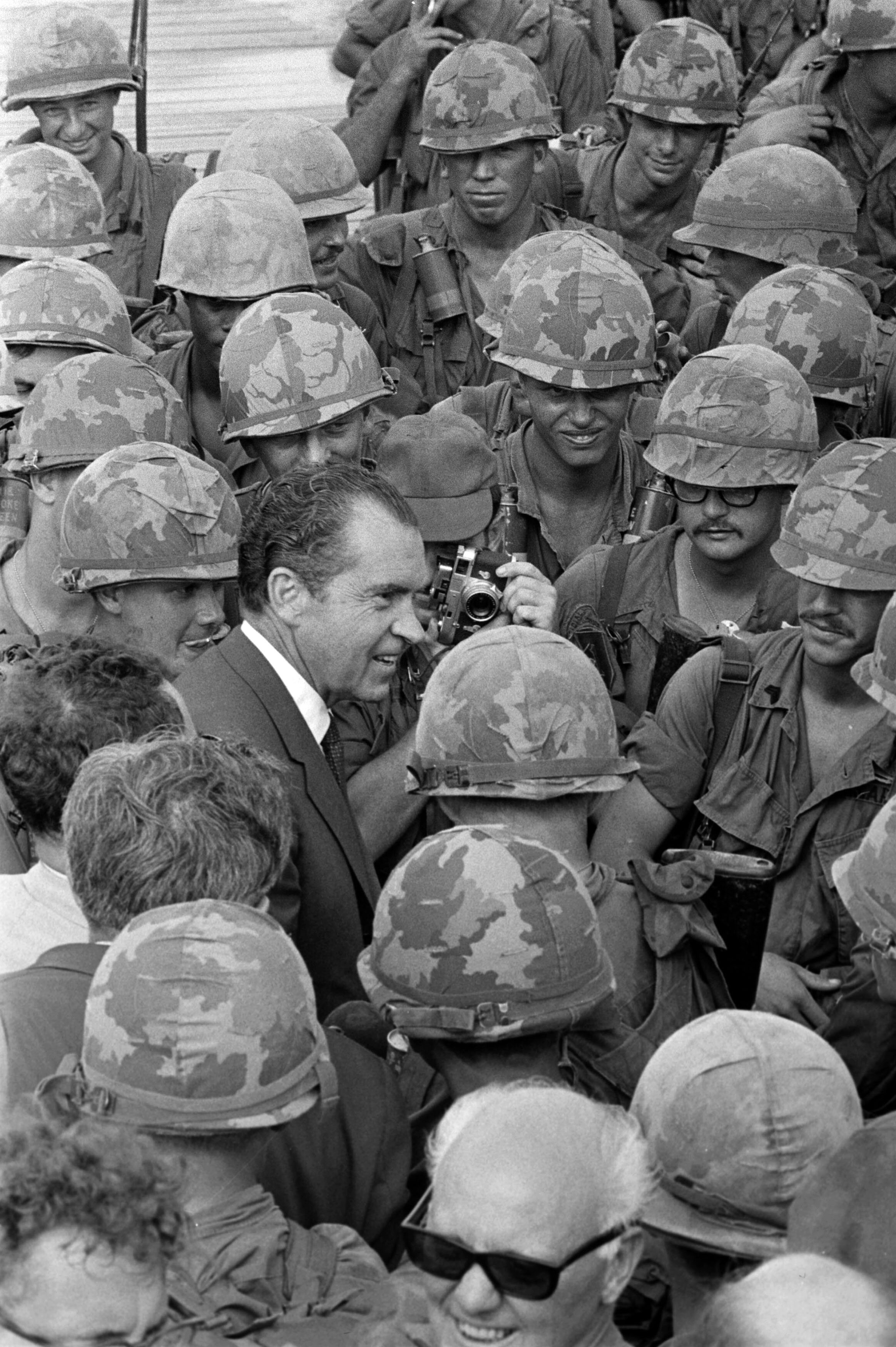
Kudos
“A brilliant new podcast...I can’t commend it highly enough. Even if you think you know a lot about Nixon and this period in history, you will be stunned by how much you learn and how much material you’ll hear that you’ve never heard before. The best kind of history. Stunningly good. Magisterial, extraordinary, delightful, entertaining, fantastic, darkly comic, brilliant. Astonishing and incredibly gratifying. The podcast is fantastic.”
“Fantastic. The smartest and clearest (and most entertaining) explanation of this tangled mess that I have heard. ”
“The Nixon Years have been litigated over and over again, but your innovation is, you make it feel more intimately knowable.”
“A model for how to bring first-rate historical research to the world of podcasting. Combined with Kurt Andersen’s riveting narrative, the podcast uses the White House tapes to let us hear history unfold in real time. ”
“Fantastic. I thought I was relatively well-schooled on the era and the key players, but this is a thrilling deep dive. You must listen.”
“It’s one of the most involving podcasts I’ve heard in ages—brisk, imaginative, outrageous (the archival audio, my God). Examining Nixon through Vietnam rather than Watergate was one of those great ideas hiding in plain sight.”
“Absolutely gripping. The best assemblage of audio I’ve heard, to convey the facts and feelings of history.”
“Riveting. Brilliant interweaving of White House tape archive and commentary.”
“Fresh, insightful, surprising.”
“Listening to Kurt Andersen’s amazing Nixon at War. Great great work.”
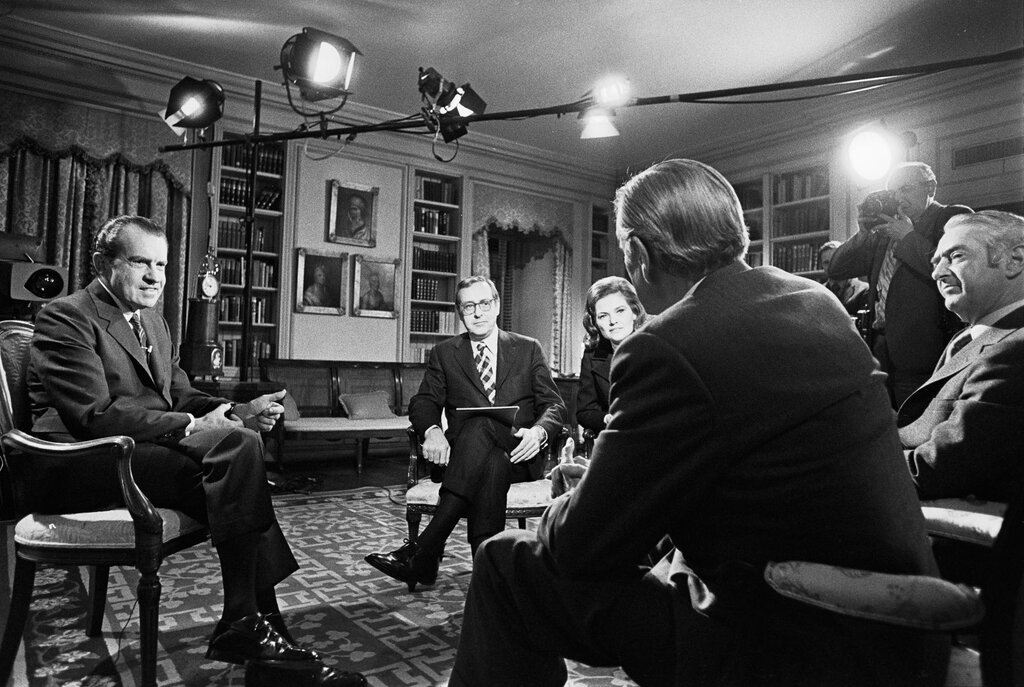
Production Team
Writer, co-producer, and host: Kurt Andersen
Series producer: Emma Weatherill
Producer: Caitlin Rathe
Mix engineer: Robin Wise
Composer: Mason Daring, with additional music by Tim Dickinson
Executive producer: Steve Atlas
—
Website and graphic designer: Lucy Andersen
Experts: John Farrell, Seymour Hersh, Elizabeth Holtzman, Ken Hughes, Tom Johnson, Lien-Hang Nguyen, and Evan Thomas
The Archival material from:
The Richard Nixon Presidential Library in Yorba Linda, California
The LBJ Presidential Library in Austin, Texas
The Miller Center at the University of Virginia
Open Vault from GBH
The Association for Diplomatic Studies and Training (ADST)
The Air Force Historical Research Agency
Rotunda, the digital imprint of the University of Virginia Press
Special thanks to: Heather Ashe, John Barth, Karen Cariani, Julia Chen, Wilfred Frost, Frank Gannon, Jocelyn Gonzales, Mike Greco, Derek John, Susan Johnson, Monica Johnson, Frederik Logevall, Timothy Naftali, Chris Appy, Ryan Pettigrew, Russell Riley, Marc Selverstone, Greg Smith, and Melinda Ward
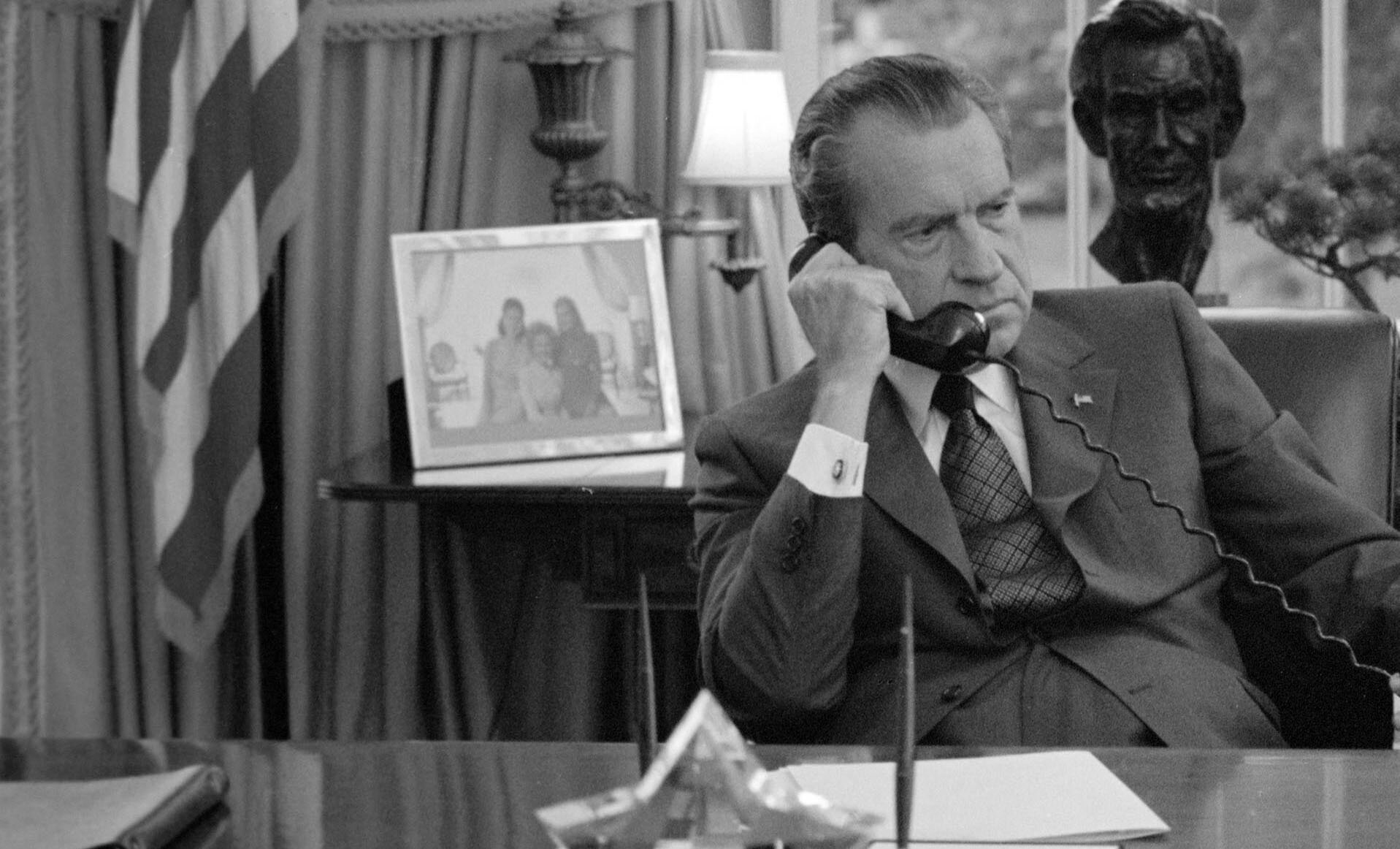
Contact
Follow on: Apple Podcasts| Spotify | Stitcher
Nixon at War is funded by the National Endowment for the Humanities and distributed by PRX.
Be sure to also listen to PRI’s LBJ’s War and LBJ and the Great Society from PRX.





